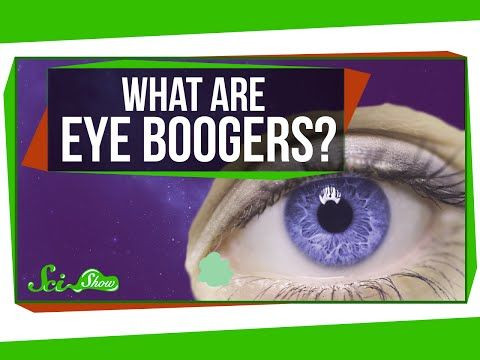Eye Boogers: Gross, But Essential Bodily Secretions That Keep Us Healthy

It’s a bodily mystery we might be too embarrassed to ask about: Just what is that gunky stuff in our eyes that shows up every time we wake up in the morning? And what is it made of? Thanks to SciShow’s latest video, all our questions have been answered.
There’s no real term for the gunk specifically found in our eyes, but the closest medical definition would either be “rheum” or “gound.” Whichever unflattering word you choose to go with, both refer to the accumulation and discharge of bodily byproducts from our ears, nose and eyes: mucus, dead skin cells, and dust. Still, at least these terms are better than the ones we hand out to other bodily secretions, namely smegma.
The mucus and oil from our eyes’ tear film act as a physical barrier against any foreign invaders, like bacteria or dirt, snatching them up on a 24/7 schedule. Every time we blink, our eyelashes act as window wipers, clearing the tiny bits of gound away. But when we sleep, we hardly move the eyelashes, allowing the gunk to build up for a few hours. Gound can range from wet and goopy to dry and sticky, depending on what exactly our eyes have thankfully captured for us that night.
If our eyes are the windows to our soul, then its nightly gound can be a sort of rudimentary measuring stick for our eye health. When there’s more gound than usual, that can indicate an irritation of our conjunctiva, either through infections, like pink eye or allergies. It can also signal dysfunctional oil glands and tear ducts.
Ultimately, as SciShow’s Michael Aranda reminds us, eye gound is a perfectly natural part of our lives.
Published by Medicaldaily.com



























